How Three Class of 2024 Grads Landed Jobs Before Graduating
The key to their success? Internships, internships, internships
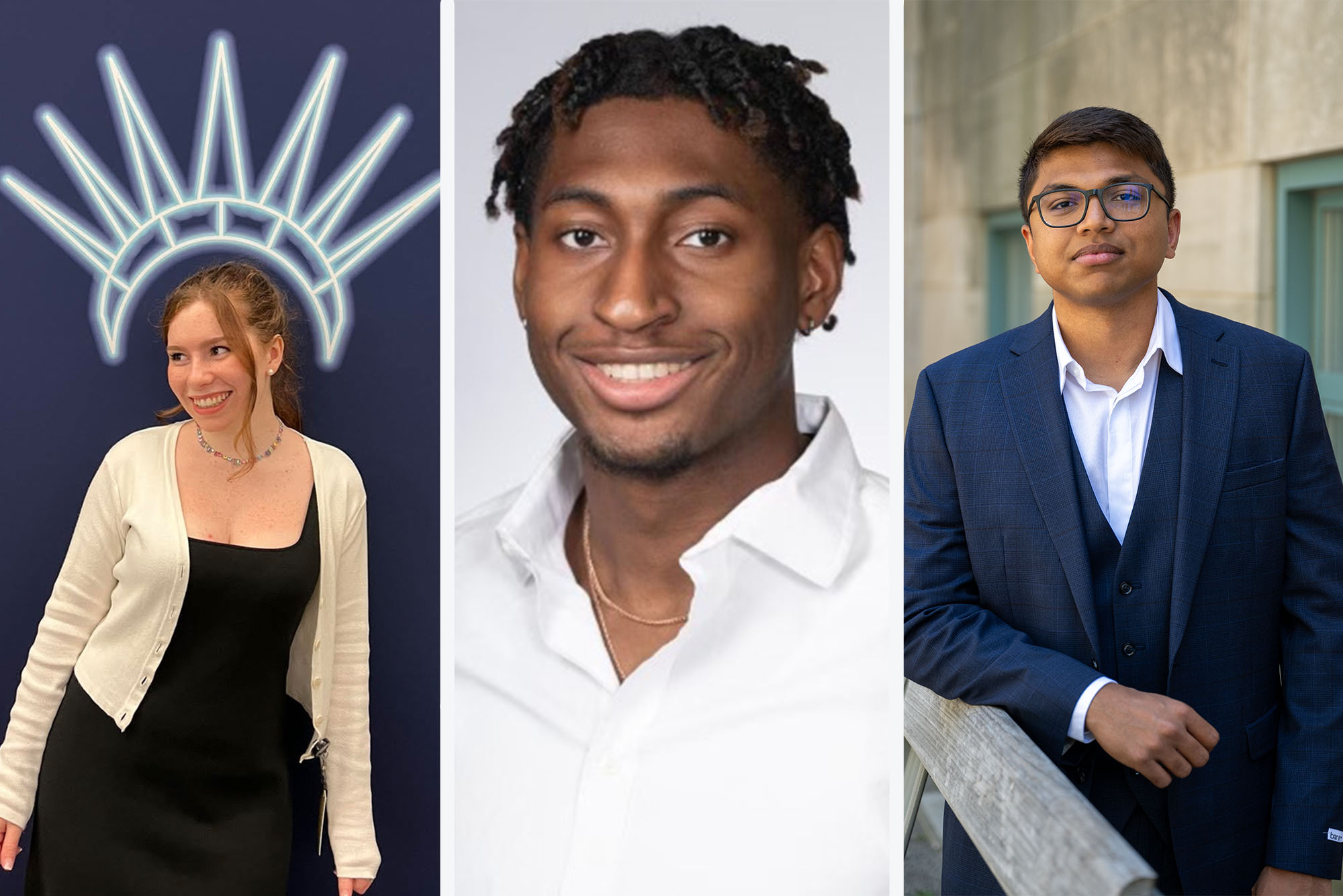
Tabitha Fortner (CAS’24) (from left), Armani Jean (Questrom’24), and Shreyas Dayananda Swamy (ENG’24). Fortner and Jean photos courtesy of Fortner and Jean; Swamy photo by Cydney Scott
How Three Class of 2024 Grads Landed Jobs Before Graduating
The key to their success? Internships, internships, internships
Commencement 2024 at Boston University is over. If you were a senior, that means you’ve written your last papers, taken your last exams, and presented the last of your projects. You’ve thanked the faculty and staff who helped you on your journey, said goodbye to the friends you spent the past few years with, and likely packed up your apartment or dorm room.
Now what?
Work.
We don’t need to tell you that entering the working world can be a doozy.
On one hand, you’re putting all the skills you learned in classrooms to work in a real-world setting and getting paid to do so. You’re building up your résumé, your networking contacts, and your capabilities. On the other hand, you’re adapting to a new environment that comes with higher expectations and fewer safety nets, on top of getting used to a new day-to-day schedule and maybe paying your own bills for the first time. Or, you might be on the other side of things entirely, furiously applying for jobs but seeing little come to fruition. (To which we say: sympathies and hang in there, folks.)
BU Today recently spoke with three members of the Class of 2024 who landed jobs before they graduated and asked them how they did it. The three come from different fields, but all had one critical thing in common: internships.
Internships are valuable in many ways. They serve as an introduction to a field, giving you hands-on experience that can help you determine whether or not that organization or industry is the right fit for you. They’re also a classic job pipeline—countless organizations tend to hire interns for full-time positions. Plus, according to a “First Destination” survey of 2023 BU grads’ career outcomes from the Center for Career Development (CCD), those Terriers who completed internships during college earn more after graduation than students who did not.
And good news for folks still searching for work: also according to the CCD study, by now, 9 out of 10 2023 BU grads have settled into a job. (So there’s a light at the end of the tunnel, promise!)
Curious about how these Class of 2024 grads managed to secure jobs? Keep reading.
Shreyas Dayananda Swamy (ENG’24)
Tesla
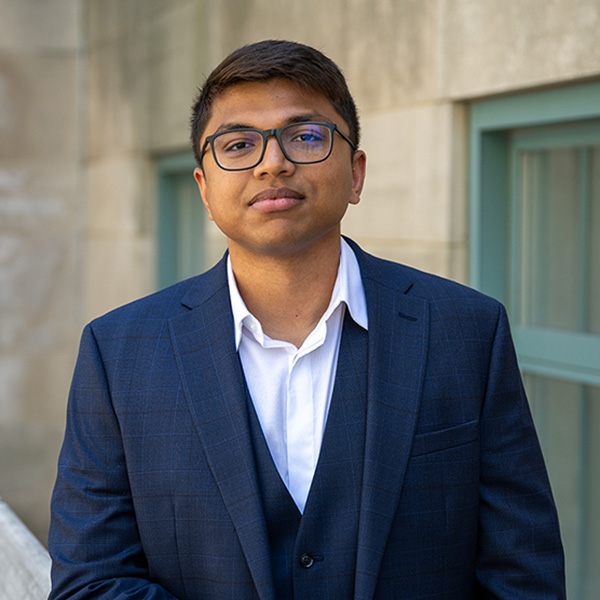
As a graduate student, Shreyas Dayananda Swamy (ENG’24) has had plenty of experience in engineering. He earned his bachelor’s in mechanical engineering from PES University in Bengaluru, India. After graduation, he took a job as a design engineer for an electric vehicle start-up. Then he realized that in order to make battery packs, he needed to understand how individual battery cells are made. So he came to BU in 2022 to get his master’s in materials science at the College of Engineering. Swamy’s concentration: energy, specifically battery technology and solar energy systems.
After graduation, he’s moving to Austin to work full-time for Tesla as an associate manufacturing engineer for the company’s cell manufacturing team.
The key internship
Swamy applied for almost 30 summer internships last year. He heard back from only one: Tesla. During an interview for the position, he says he felt a “really good connection” with the manager from Tesla’s Austin campus, who liked his application. Unfortunately, the position fell through. But Swamy had already connected with the manager on LinkedIn, and he checked in with him periodically, so when a paid internship opened in the fall, the manager reached back out to see if Swamy was available. And that was his entry into the company.
“I think that networking connection really helped me to get my internship back,” Swamy says. “Having someone on the inside to vouch for my application definitely made it easier.”
ENG and BU’s Graduate Programs Office helped Swamy secure a Curricular Practical Training (CPT) visa for the semester, and off to Austin he went.
He interned full-time in Tesla’s cell manufacturing department, performing various tasks within manufacturing, design, and production, including working on the batteries for Tesla Cybertrucks and Model Y SUVs. Some highlights: working with lasers that weld metal for manufacturing in his first week, and seeing the Cybertruck launch during his internship. “There’s no boundary where you have to stick to a project or person; you can work on projects based on your interest,” Swamy says. “It was some exciting stuff.”
How he turned his internship into a job
Swamy went into his internship with one goal: “To prove a point, that I was good enough to come back,” he says. At a company as notoriously competitive as Tesla, that was no small challenge. He made a point of getting to know staffers from teams throughout the organization and asked their advice about how to make the next step. “Everyone’s been through the interview that I would potentially be going through—understanding their perspectives on the process was helpful,” Swamy says.
His manager’s advice? Everyone knows interns want full-time employment, but never show how desperate you are. Instead, he counseled Swamy to stick to proving his skill set and understand that interns already have an edge. So that’s exactly what Swamy did—he booked an interview at the end of his internship, and played up his skills and his experience. With people across the company able to vouch for him, he snagged a full-time position, to begin after Commencement.
What he recommends
Getting an internship, and then a job, at Tesla in the first place required curating a highly specific skill set. For some, “narrowing down your options isn’t the best strategy, but for me, it worked in my favor,” Swamy says. “The more specific I was, the more reason there was for me to get that specific job.”
Swamy acknowledges that finding positions as an international student can be extra complicated. Figuring out a way to stand out from the crowd is key to making an employer take notice and want to sponsor you, he says. He also recommends using a tool like Big Interview to prep for likely interview questions.
Tabitha Fortner (CAS’24)
Liberty Mutual
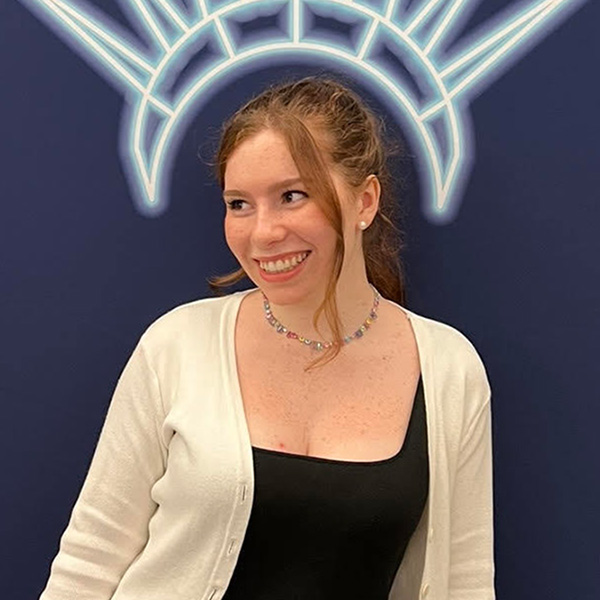
Tabitha Fortner (CAS’24) started her college career at Bentley University before transferring to BU as a sophomore. She had planned to major in business, but would have had to redo the accounting classes she’d already taken at Bentley. So she double-majored in psychology and economics and minored in innovation and entrepreneurship, intending to go into a business career. While at BU, Fortner served on the e-boards of the Fashion and Retail Association and Feel Good BU, also known as the “grilled cheese club.” Outside of BU, she held several internships, including one with the nonprofit Autism Speaks and another with cosmetics company Elizabeth Arden in London.
After she graduates, she’s staying in Boston to work as an insurance analyst at Liberty Mutual Insurance.
The key internship
Fortner’s story starts with Noelle O’Brien, manager of internship programs at the Center for Career Development. Near the beginning of junior year, she saw that O’Brien liked a post on LinkedIn about a Liberty Mutual student diversity symposium, a digital event for college students to learn about the insurance industry and what the company was doing to foster diversity, equity, and inclusion. Fortner applied and got into the symposium, making her eligible to be fast-tracked for internship interviews. She attended the symposium, liked what she heard, and interviewed for an internship position a month later. The company hired her as an insurance analyst development intern for summer 2023.
“I had a summer internship secured before Halloween, which was a huge deal,” says Fortner, who applied to 75 internships and received 2 offers (the other was with a tech company back home in New York).
Liberty Mutual put her in their analytics department, which involved researching state laws and running numbers for new products, like a safe driving–reward program. It was a data- and coding-heavy role with robust on-the-job training. “It was the perfect place to learn,” Fortner says. “If I had taken a coding class at BU, it would have tanked my GPA. I learned how to use SAS and Power BI through workshops Liberty Mutual hosted that were tailored very specifically for the job.”
What she learned from job applications
Fortner knows she’s lucky that Liberty Mutual was satisfied with her work, enough to hire her for a full-time position. But in the meantime she continued to apply for other jobs and internships. One thing she learned early on was how to market her skill sets to specific jobs—and that skills can come from unexpected areas.
“I think a huge mistake people make is sending the same résumé to every job,” Fortner says. That’s fine for some industries, she acknowledges, but if you’re applying to an array of positions, it’s critical to tailor your résumé to fit as closely as possible to the specific role you’re applying for. For example, for more finance-oriented jobs, she would talk about her experience managing money as the president of Feel Good BU. For a research position, she would add examples of research projects she’d done for her majors.
When it comes to interviews, Fortner says it’s important to strike a balance between being prepared and being genuine in your responses. “Don’t read from a script, but definitely have the gist of what you might say to questions like, ‘Tell me about yourself,’” Fortner says. “Having your bullet points ready is really important.”
What she learned from failure
Fortner applied to “so many” jobs and internships without success, she says. It can be difficult not to let rejection affect your self-confidence. But it’s important not to take it personally.
“I saw something on Instagram about a computer science student who applied to 500 internships and got maybe 10 interviews,” Fortner says. “That’s a crazy stat.”
She advises other recent grads to remember this: “It’s not just you—it’s happening to everybody.”
Armani Jean (Questrom’24) PricewaterhouseCoopers
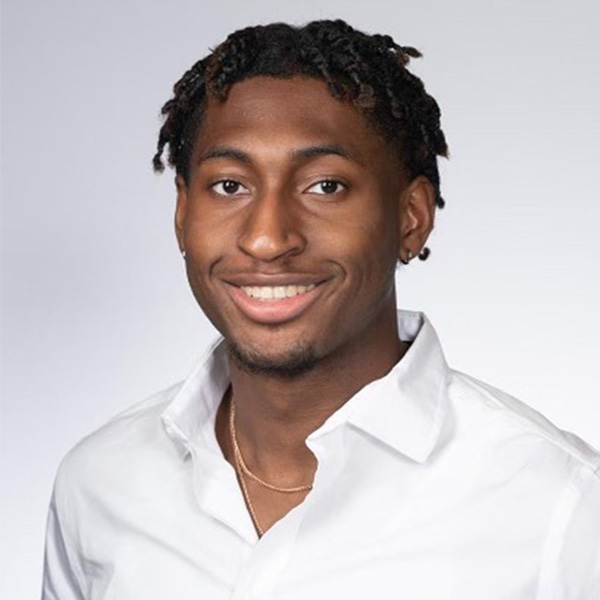
Armani Jean (Questrom’24) started college studying engineering at UMass Lowell. But the more he met people studying business, the more he liked the sound of majoring in something like finance or corporate marketing. Taking a Questrom CORE–like class at UMass sealed the deal. Figuring out the logistics for his team’s business idea—a student-run IT service—“reeled me in,” Jean says. He transferred the next year to BU’s Questrom School of Business, majoring in accounting and data analytics.
In September, Jean will begin working as a data assurance and transparency associate at PricewaterhouseCoopers (PwC) in Boston.
The key internship
Jean first got on PwC’s radar during a virtual job fair the company held during COVID-19 lockdowns. At the end, attendees had a chance to ask a recruiter questions. Jean asked what the recruiter’s favorite ice cream flavor was. That got her attention, and she shot him an email afterward to talk further. When they spoke, Jean picked her brain about her personal journey to PwC. The conversation ended with Jean banking an internship interview.
He went on to intern for PwC three summers in a row, first completing the company’s Start development program before moving up to a data assurance and transparency intern. He worked largely on audit statements, ensuring companies complied with accounting standards and weren’t doing anything remiss like leaking customer data. At the end of his summer 2023 internship, PwC offered him a full-time job after graduation.
The skills that gave him an edge
Clinching an internship interview was the result of establishing a connection with a recruiter. But actually getting the internship—plus the two subsequent ones and a permanent job offer—came down to what Jean brought to the table. First, he says, PwC was impressed with his wide-ranging work experience. He’d held prior internships in mechanical engineering and had worked in bookkeeping for the UMass Lowell gym. But he’d also worked as a Boys and Girls Club staffer, a CVS pharmacy tech, and a sales associate at Target. All provided him with different capabilities that he could point to, such as multitasking and systems management.
His hard skills—like math, financial analytics, and Excel—obviously played a major part, too. But it’s the softer skills he learned in class and other work positions that he thinks really set him apart.
“I feel like the soft skills I had to develop in the classroom were more important,” Jean says. Namely: teamwork. All of his Questrom classes involved group projects or activities. Collaborating with a variety of personality types over his years at BU helped him become proficient at working on any team and productively working through conflicts, he says.
What he learned from jobs and internships
There are several things Jean says he’s taken away from his experiences.
First, that no one is ever too good for a certain task. “It’s easy for people to think that they’re above doing mundane tasks,” Jean says. “The thing is, no one wants to do [those tasks]. But if you’re the person that people can come to to get a thing done, that lets everyone know that you’re reliable.” Not only can that lead to bigger responsibilities down the line, he says, but it also invites opportunities for mentoring and learning.
Finally, when it comes to building your “brand,” so to speak, he says it’s crucial not to forget to be a real person. “I think a lot of people focus on attaining a certain image of themselves,” whether that revolves around stellar academic performance or work experience, he says, but that shouldn’t come at the expense of your ability to play well with others. As he’s discovered, so much of getting hired comes down to whether or not you’re a good fit for a team.
Hence his ice cream question: while his résumé showcased his skills and experience, his GPA was lower than PwC prefers for its hires. Getting his foot in the door—and ultimately keeping it there—“was also due to the fact that I could just hold a conversation and was enjoyable to work with,” Jean says. “You have to think, why would a company want to spend X amount of money training you to do something over anyone else? What can you do to make it easier to have you around?”
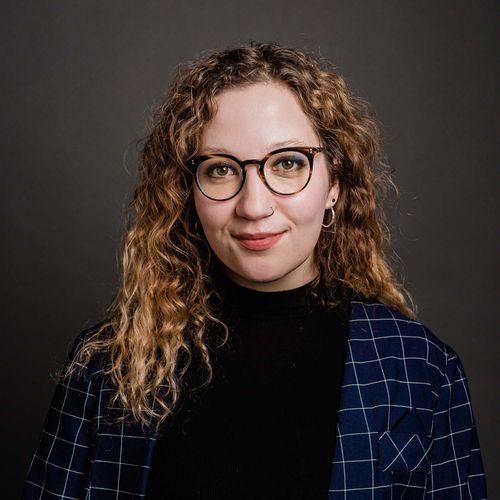
Comments & Discussion
Boston University moderates comments to facilitate an informed, substantive, civil conversation. Abusive, profane, self-promotional, misleading, incoherent or off-topic comments will be rejected. Moderators are staffed during regular business hours (EST) and can only accept comments written in English. Statistics or facts must include a citation or a link to the citation.